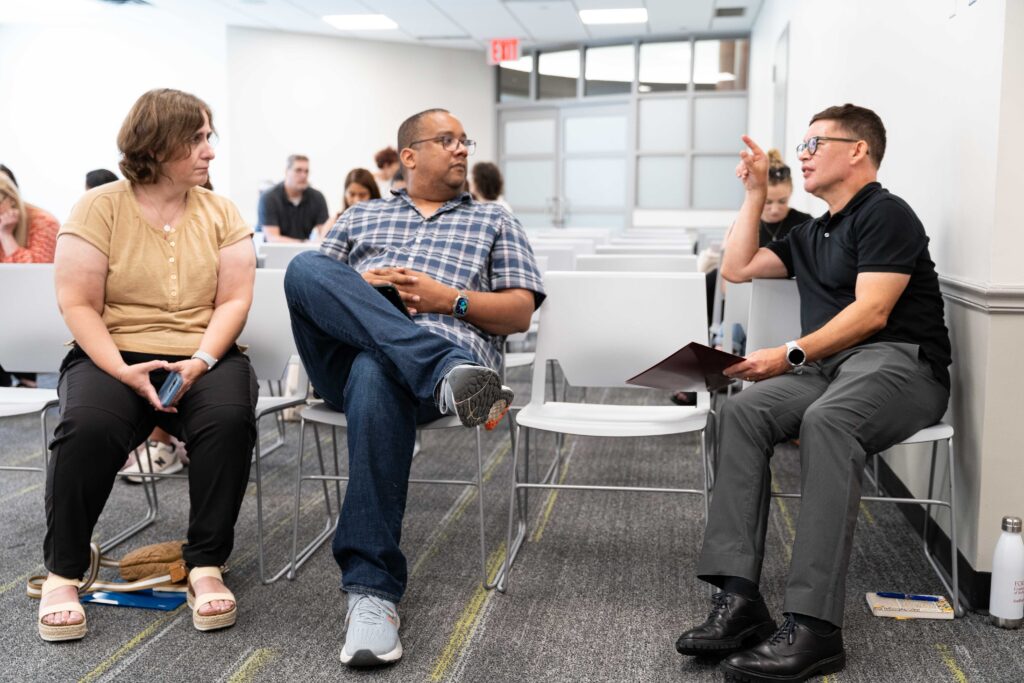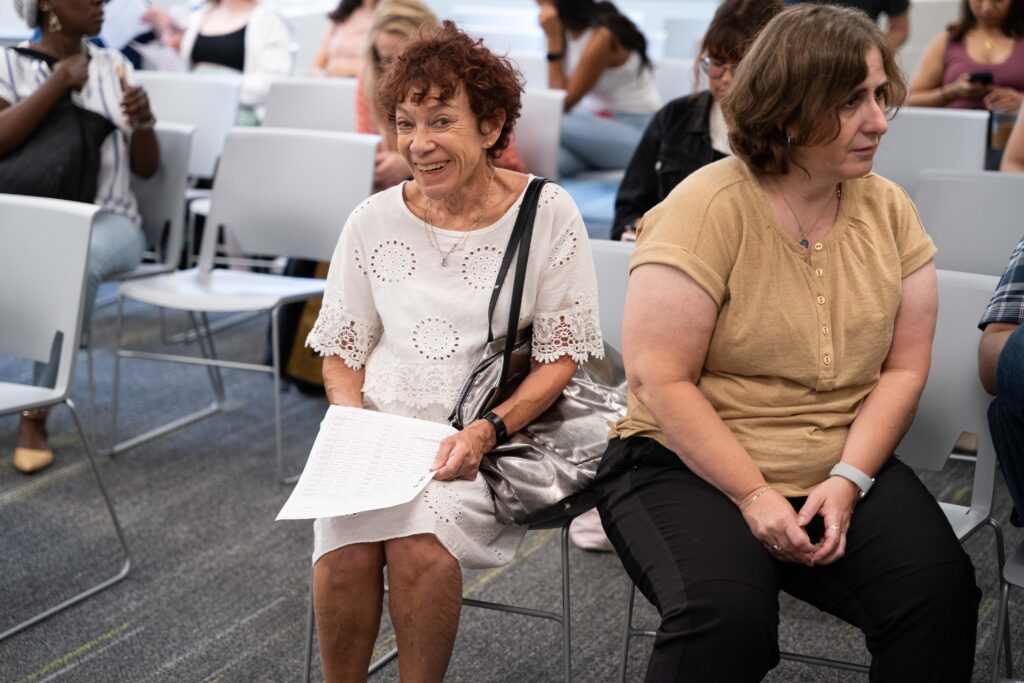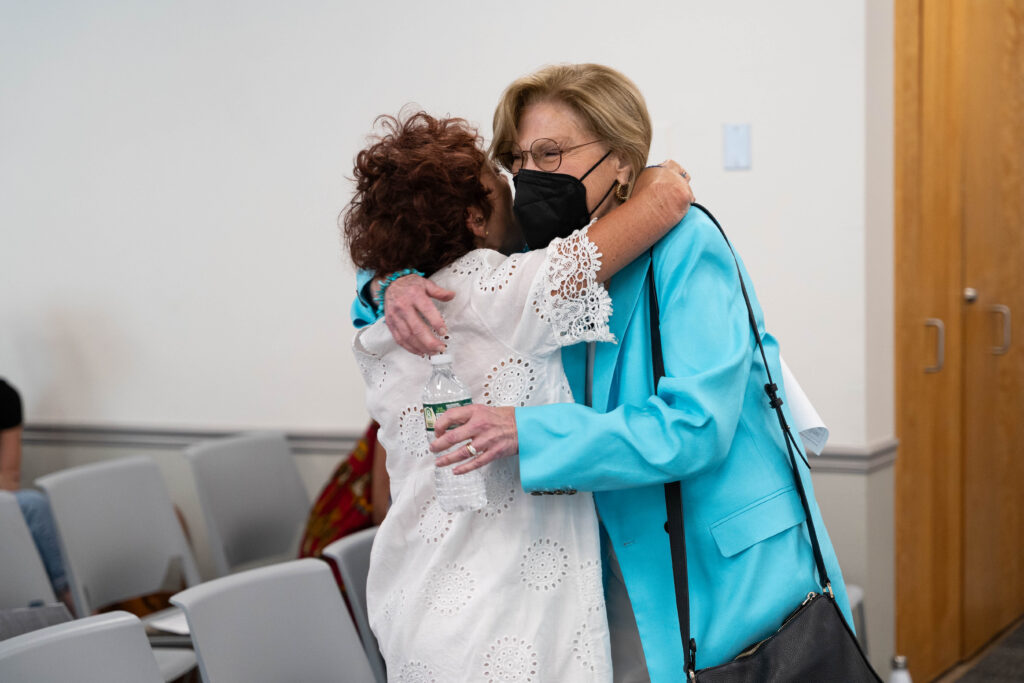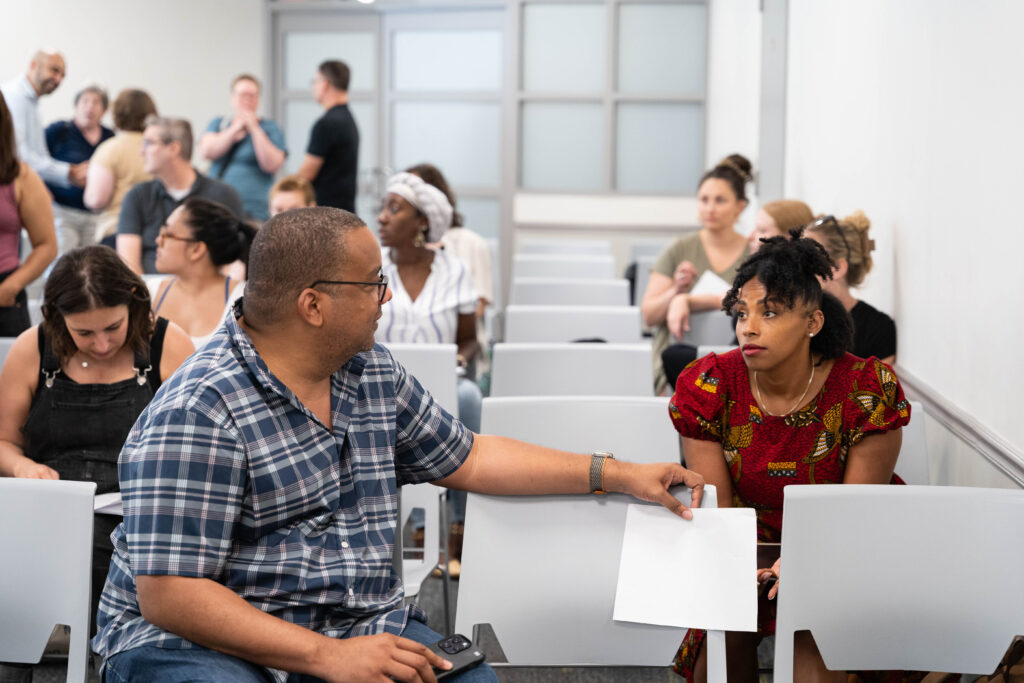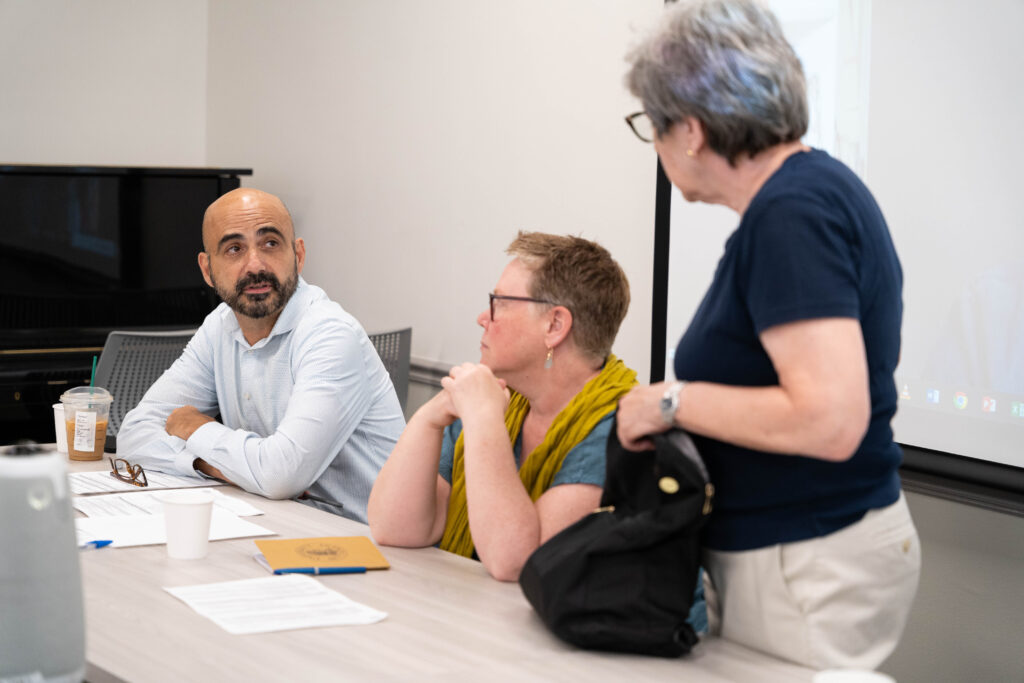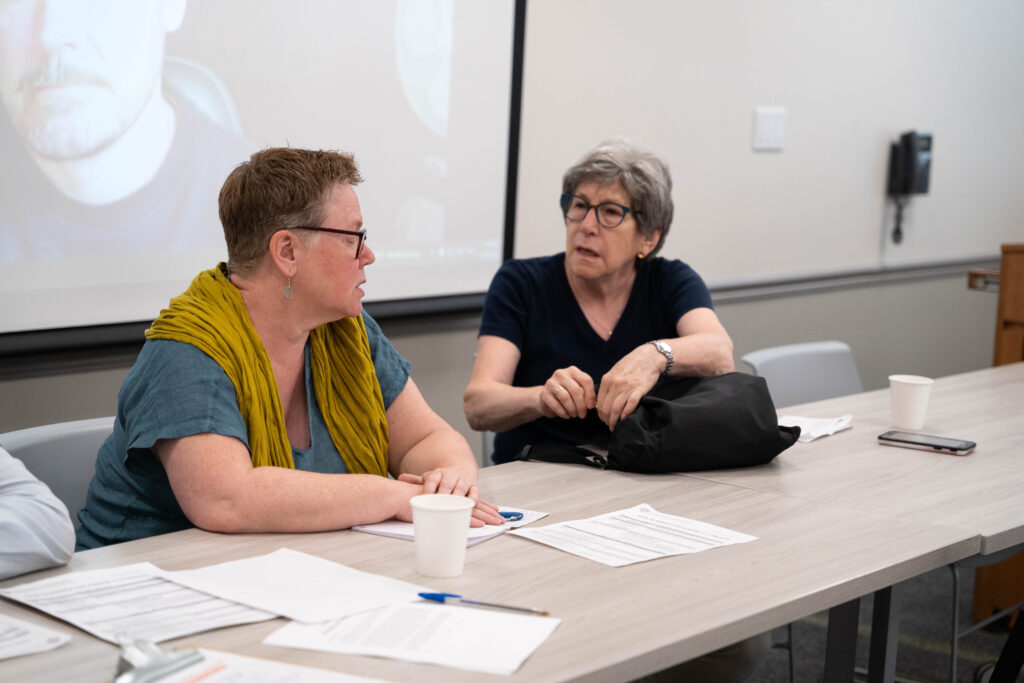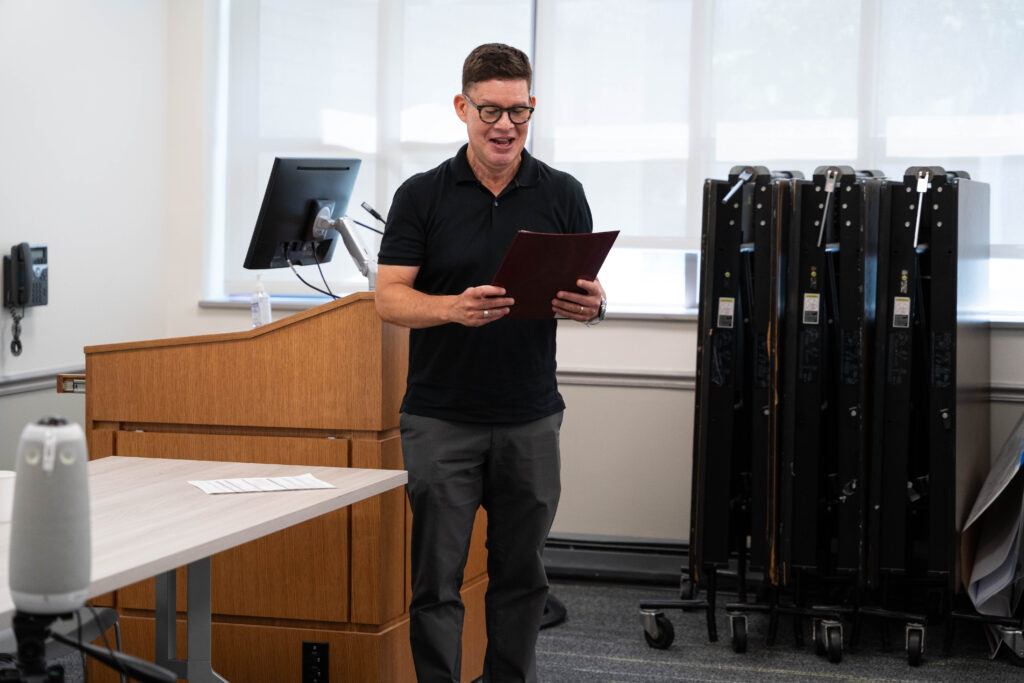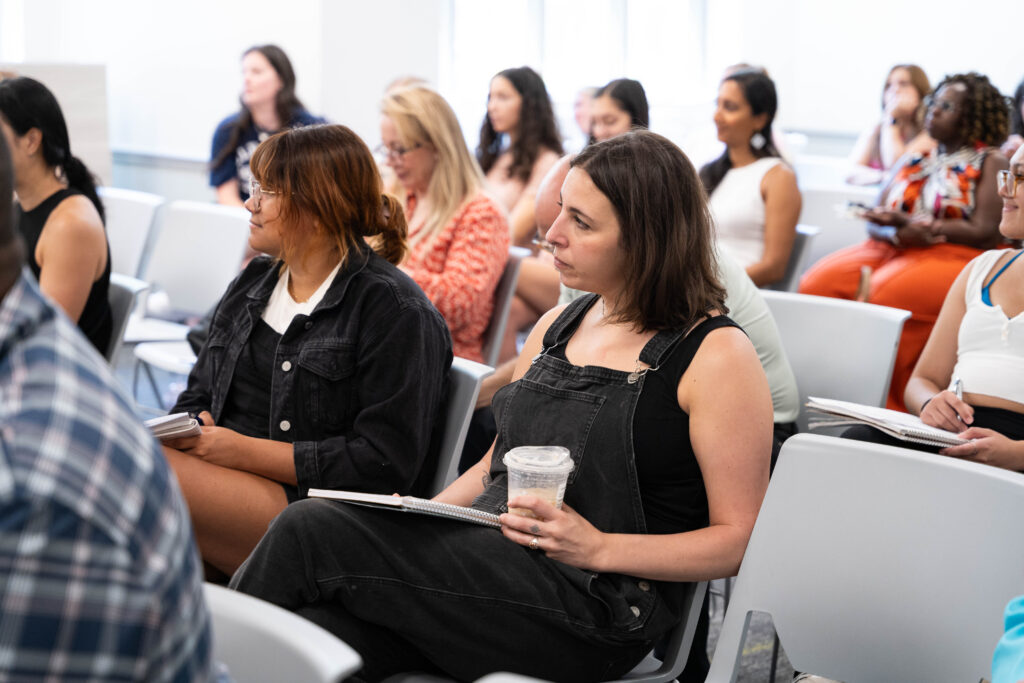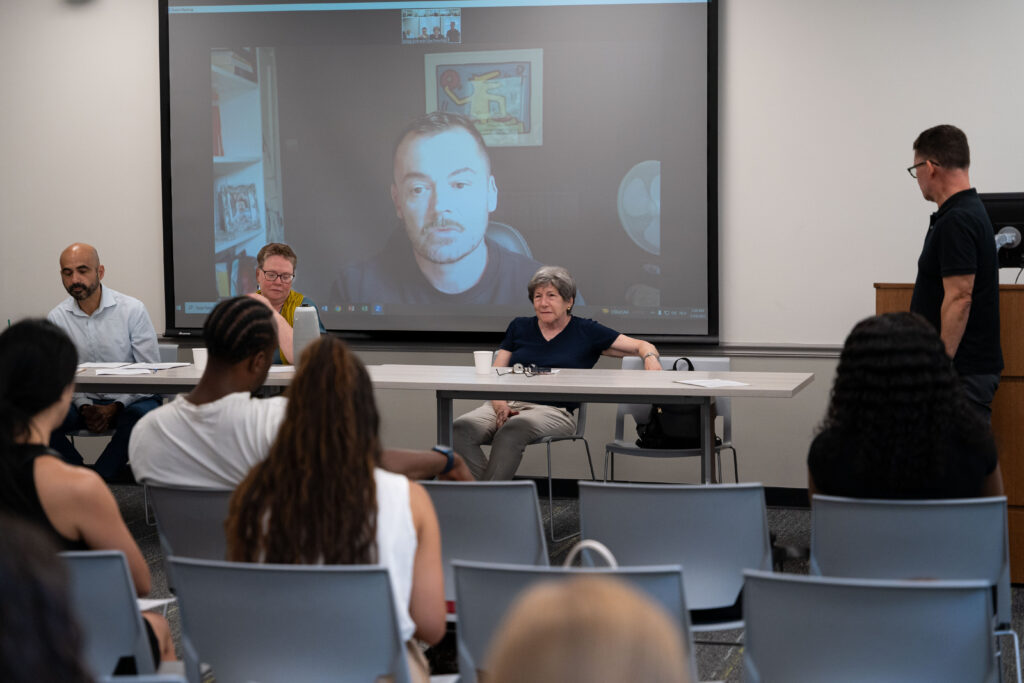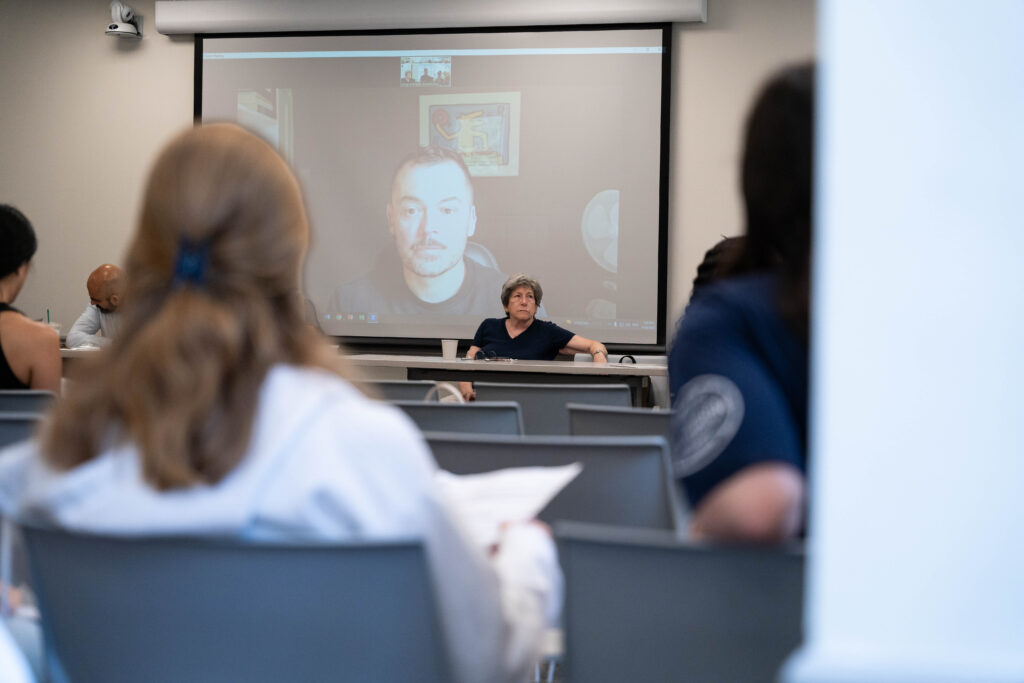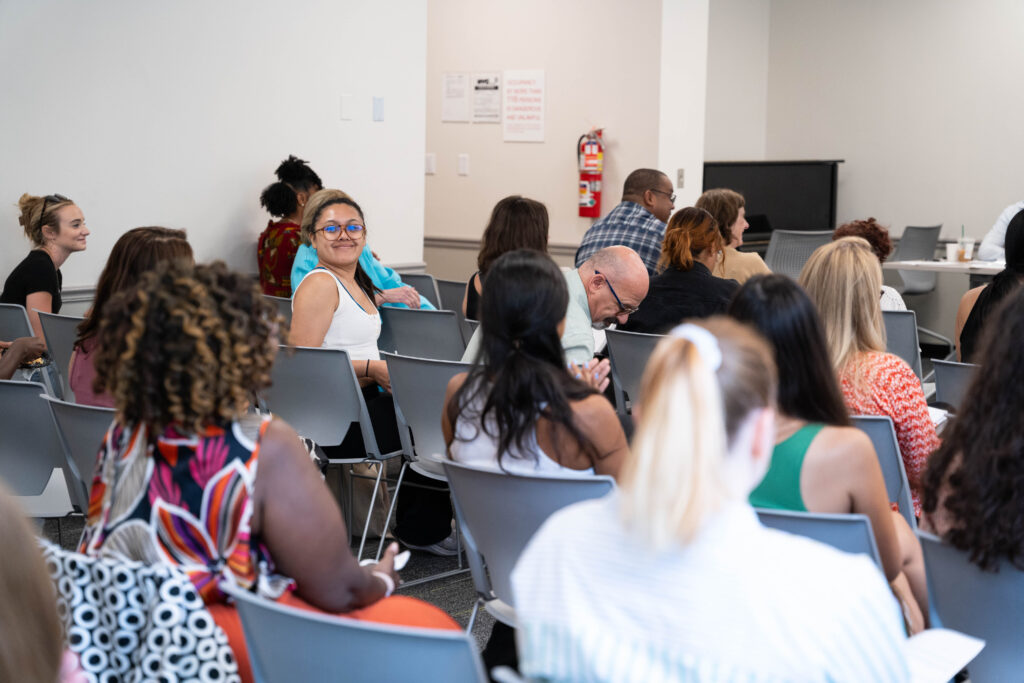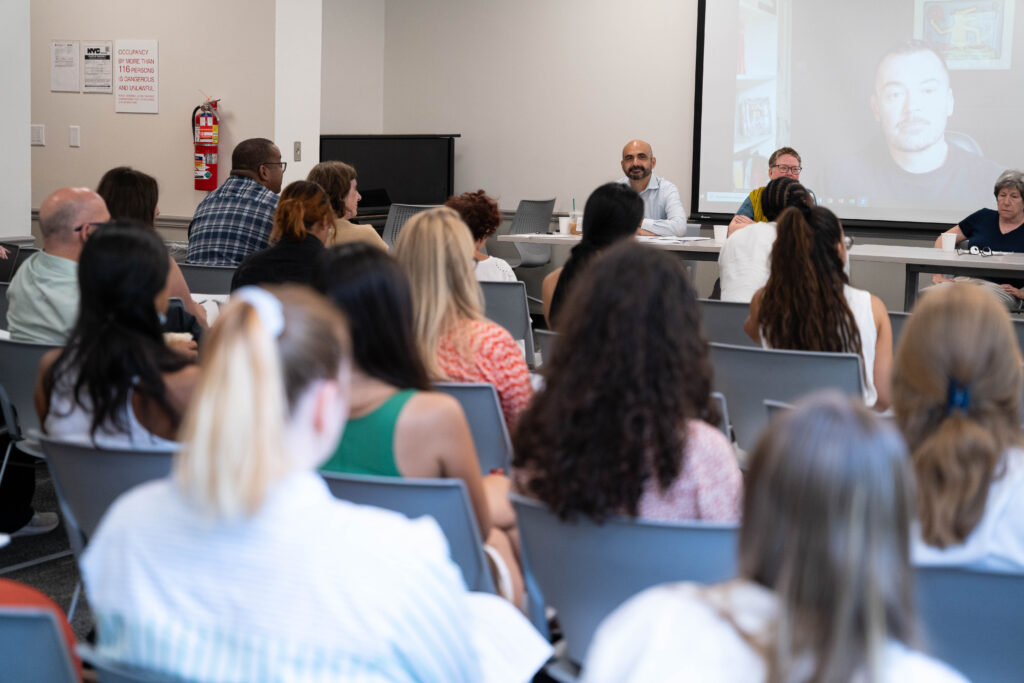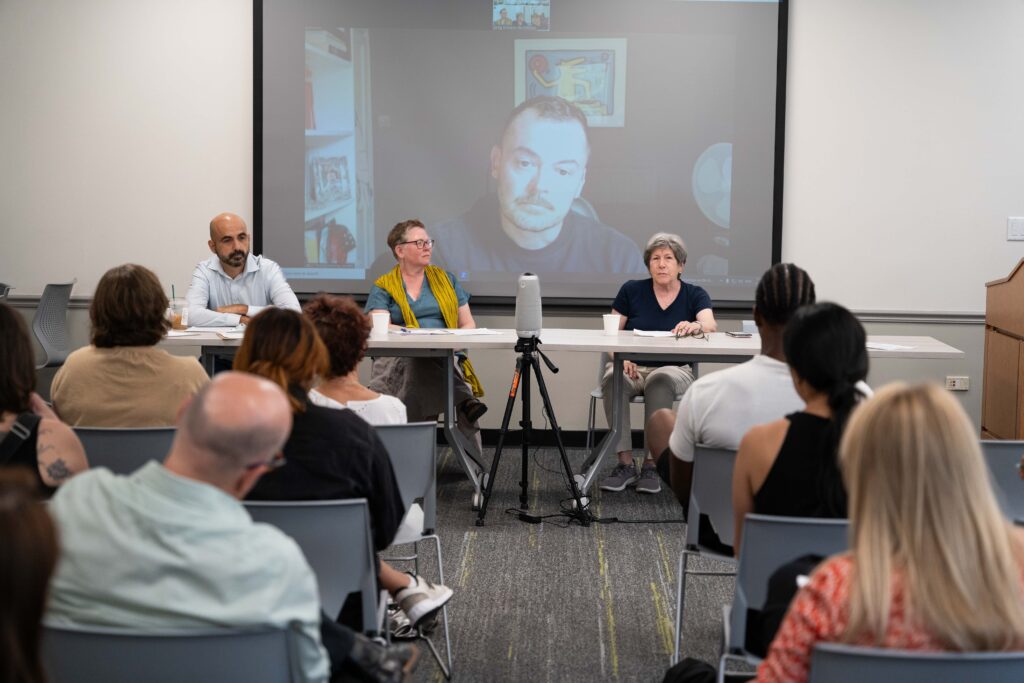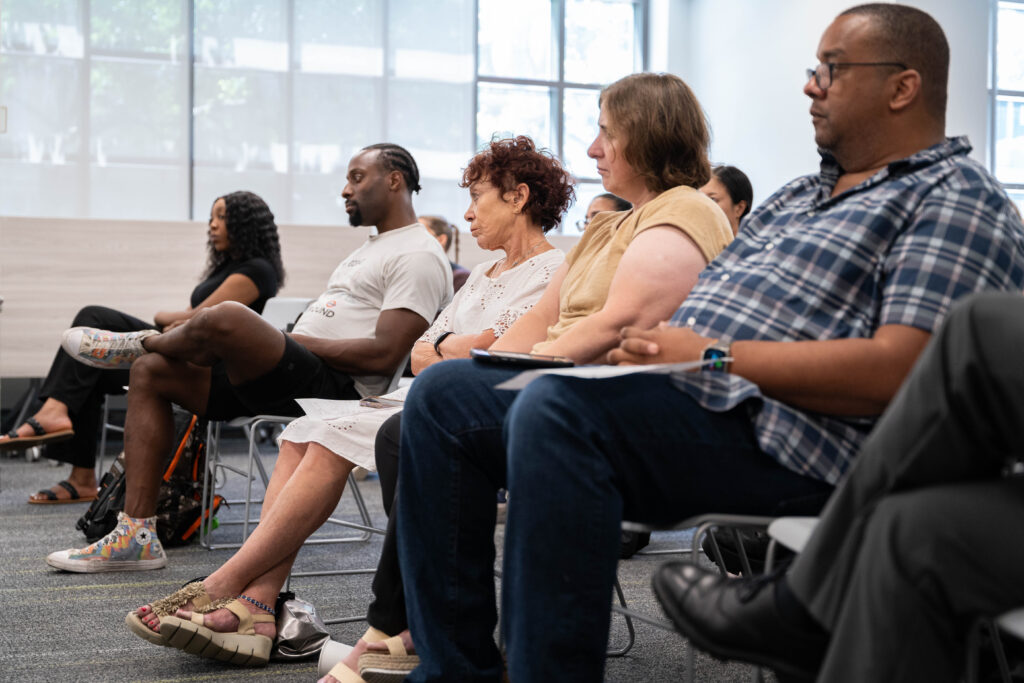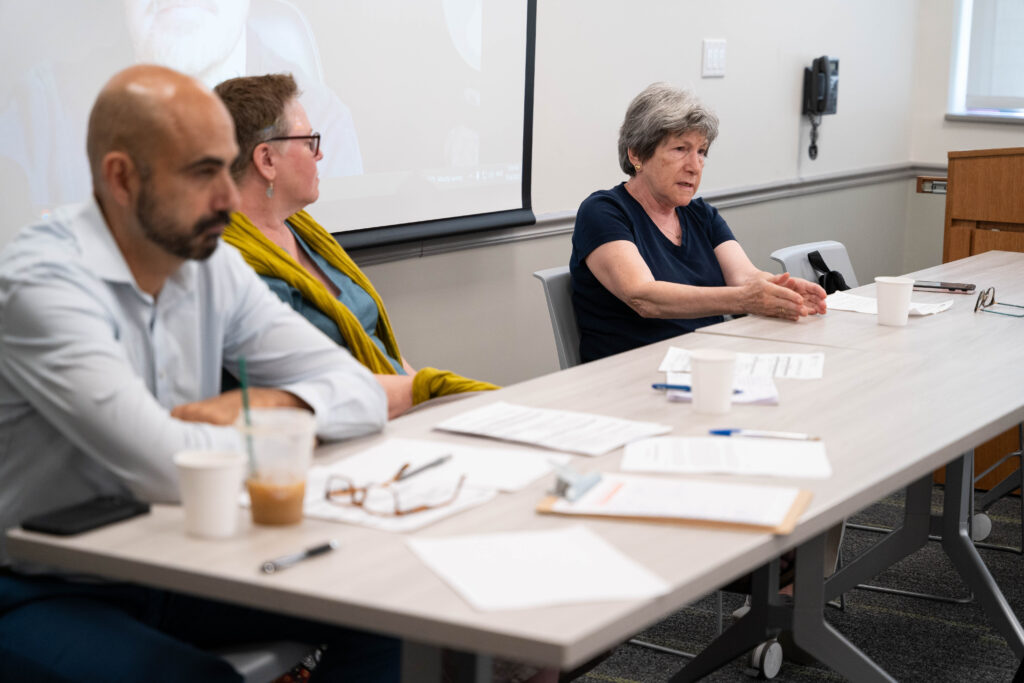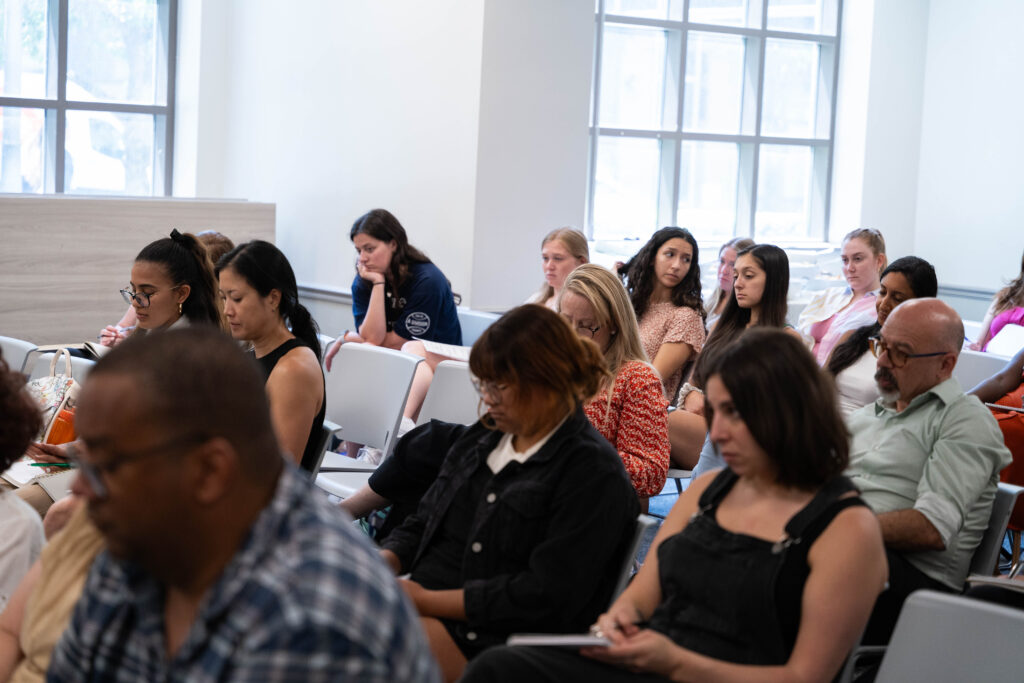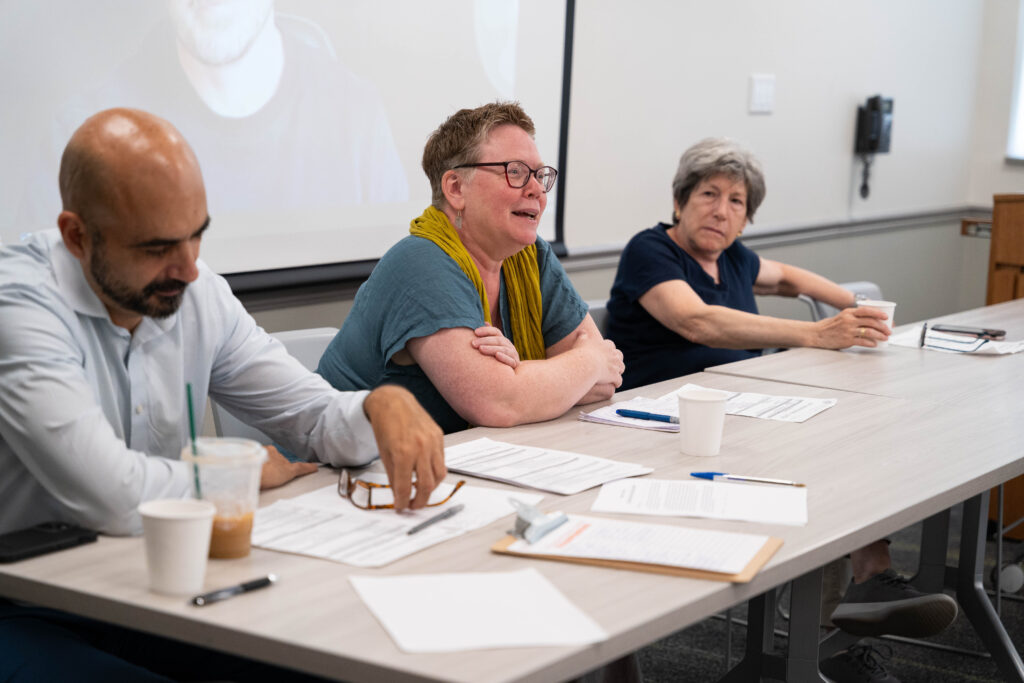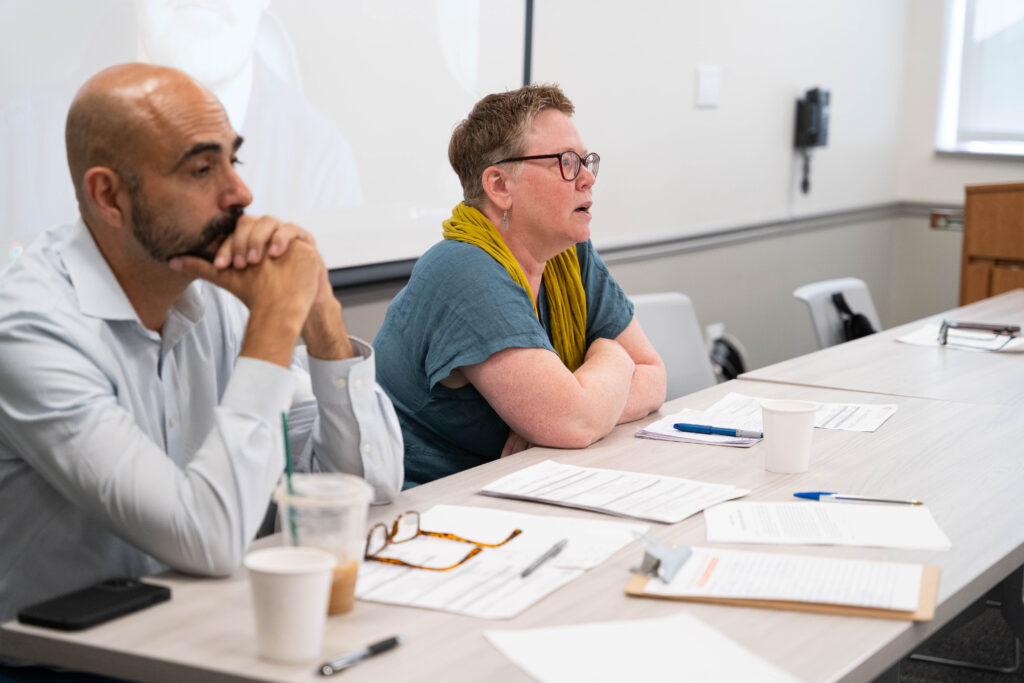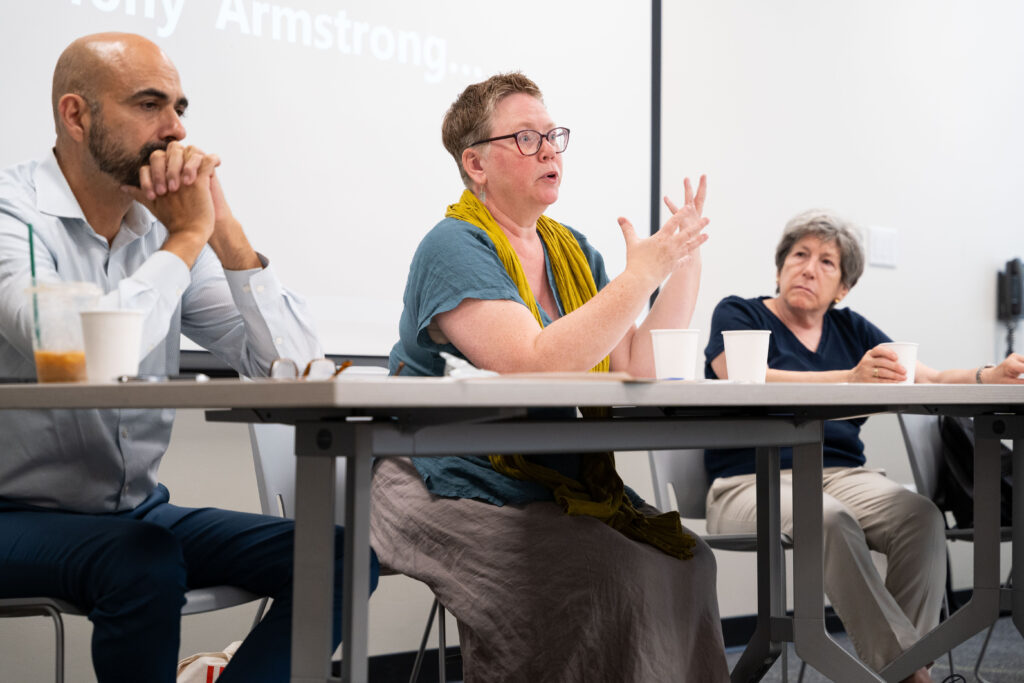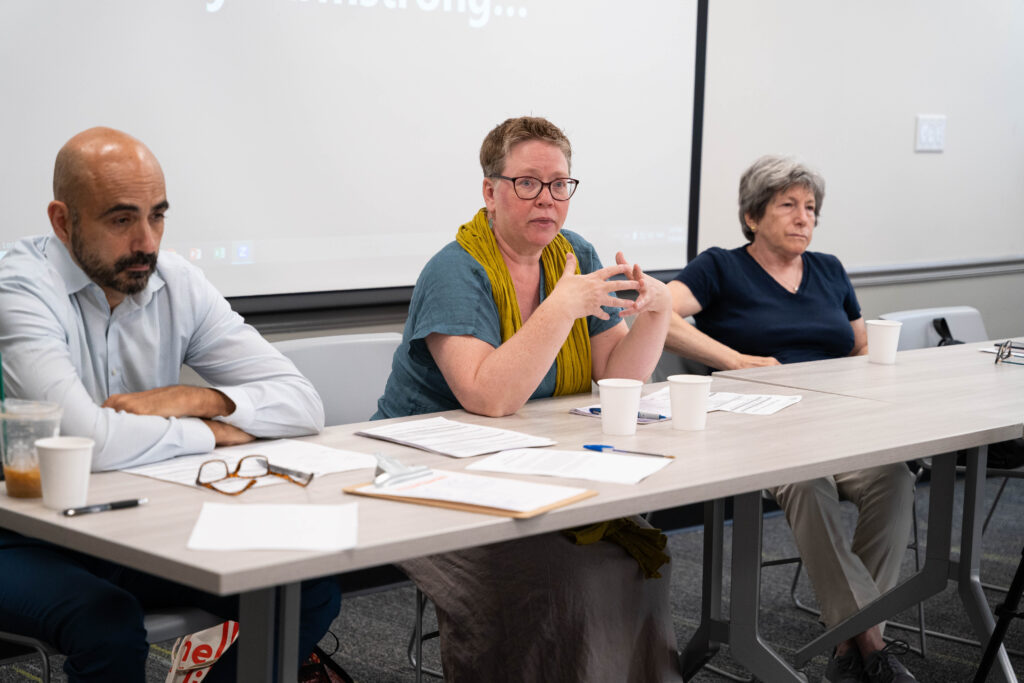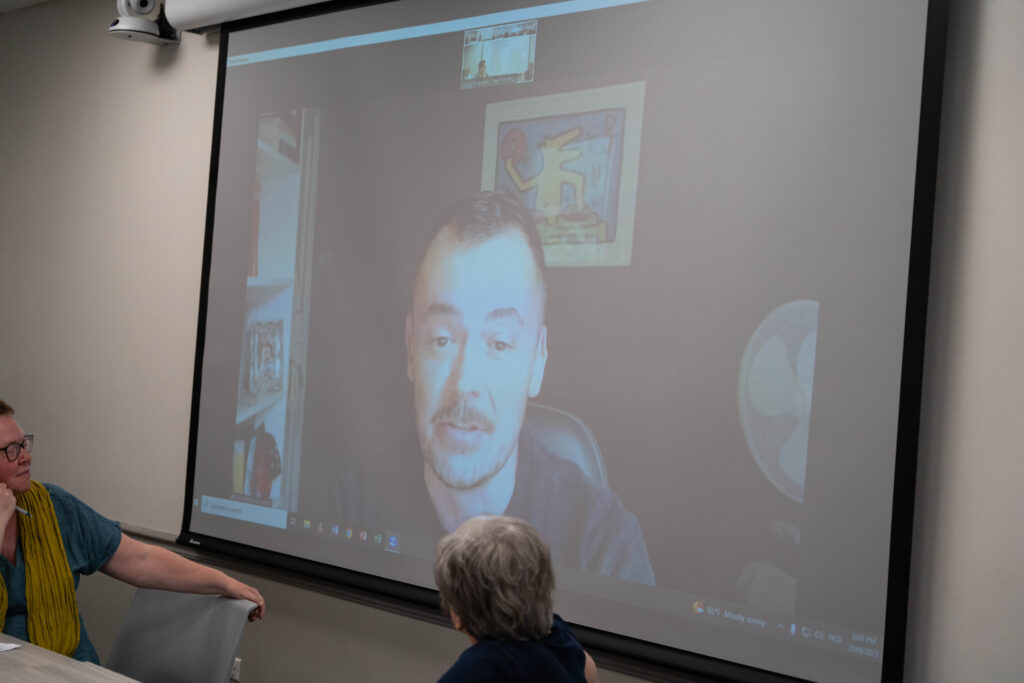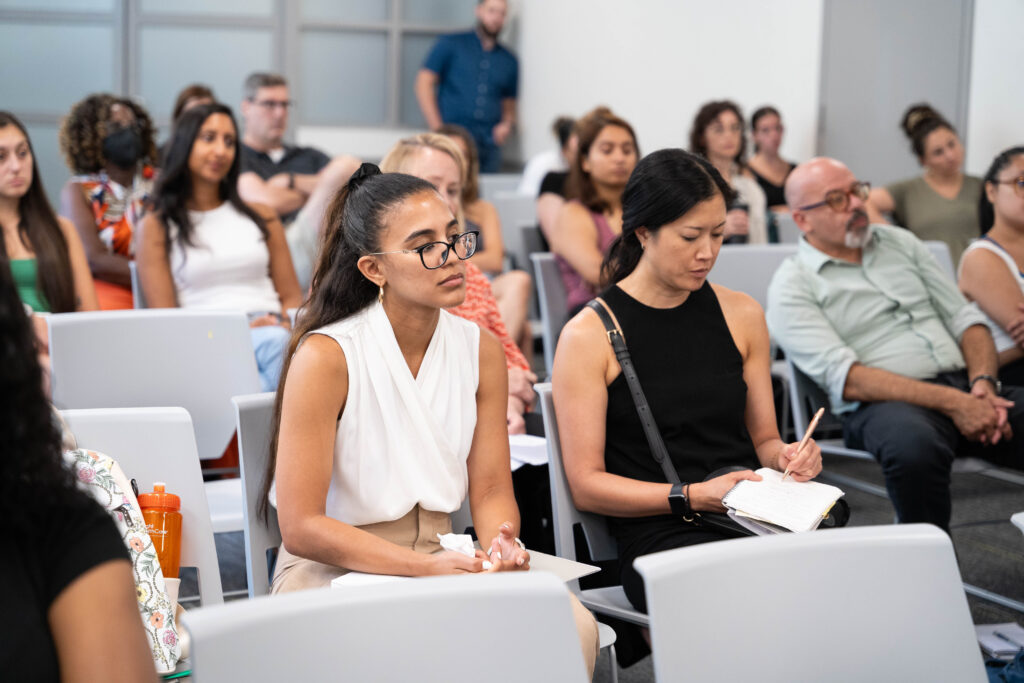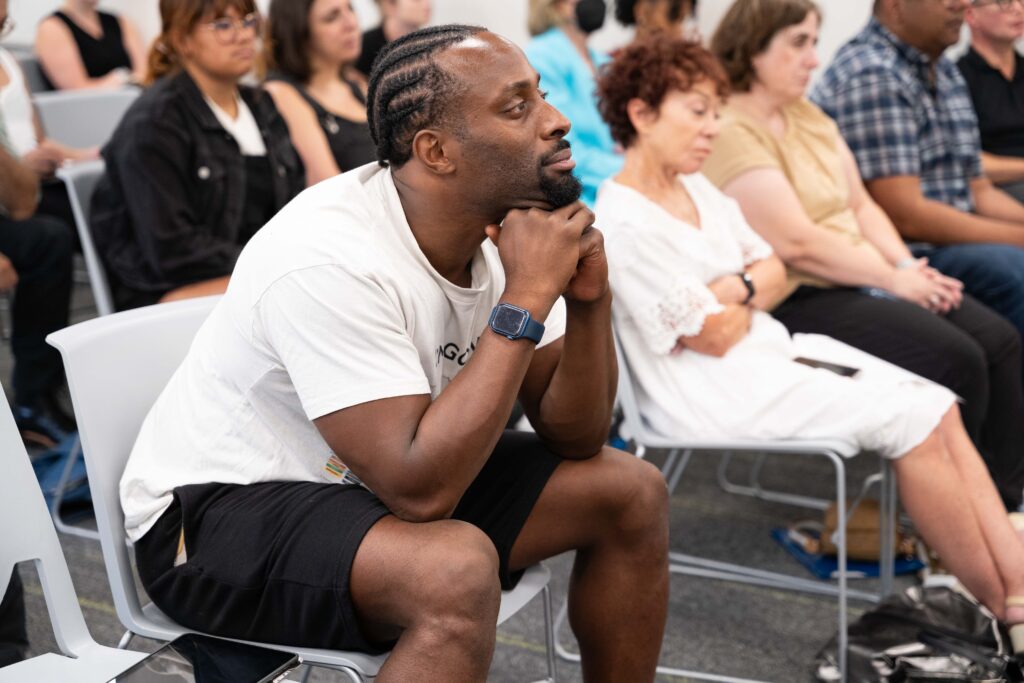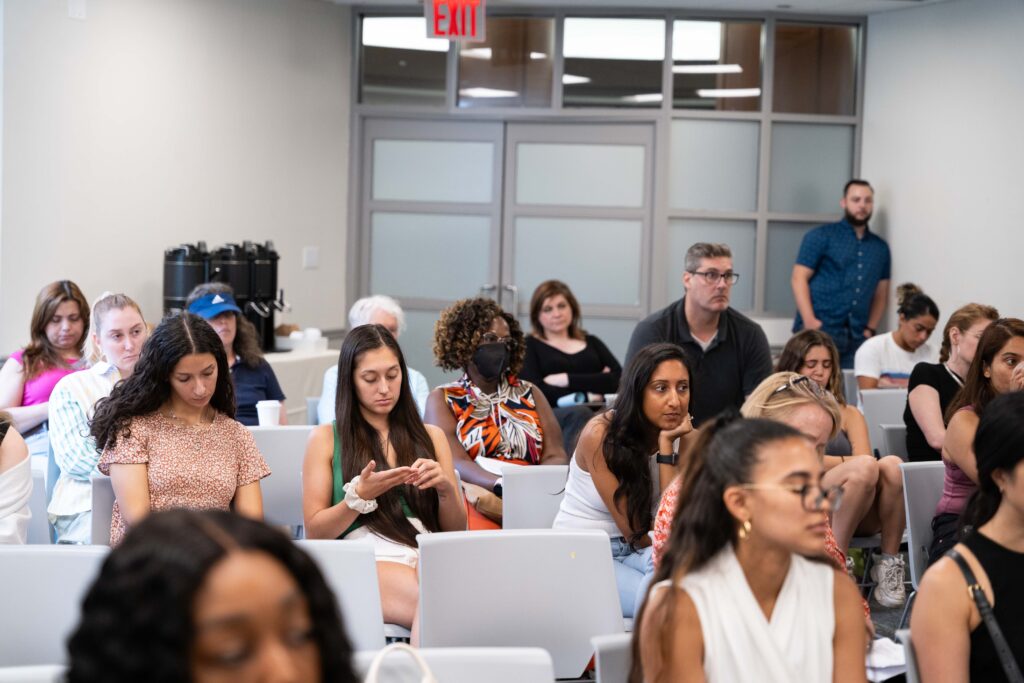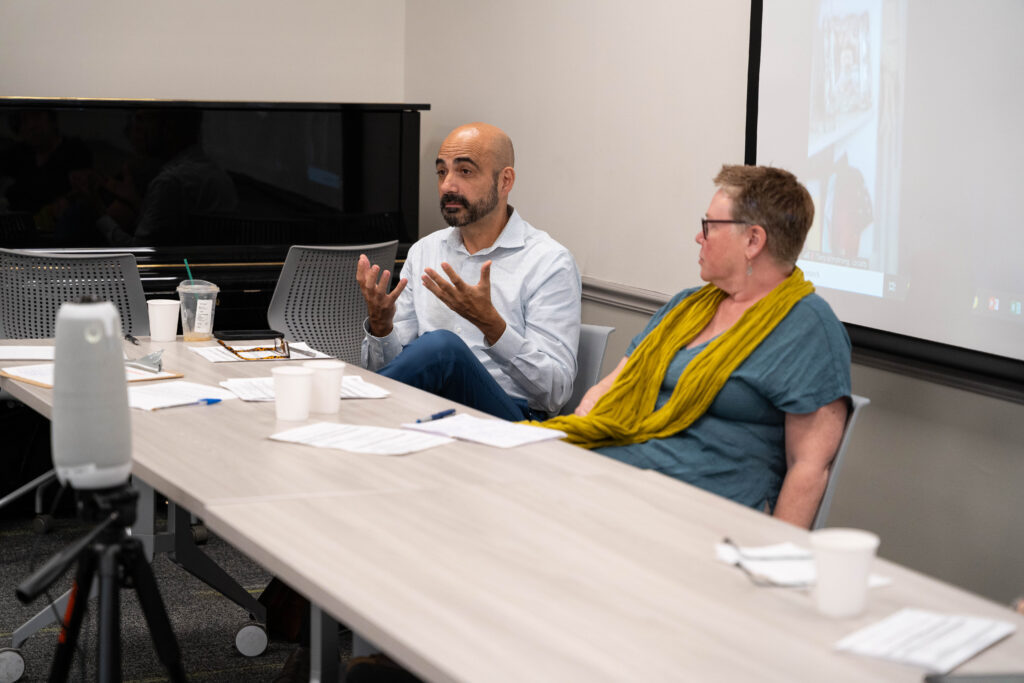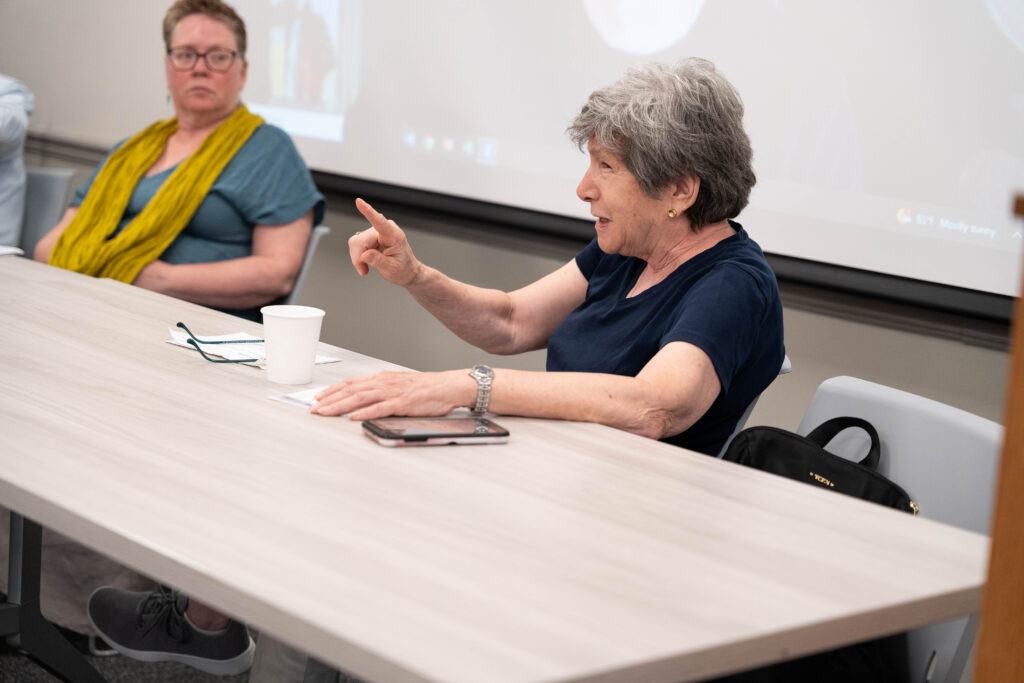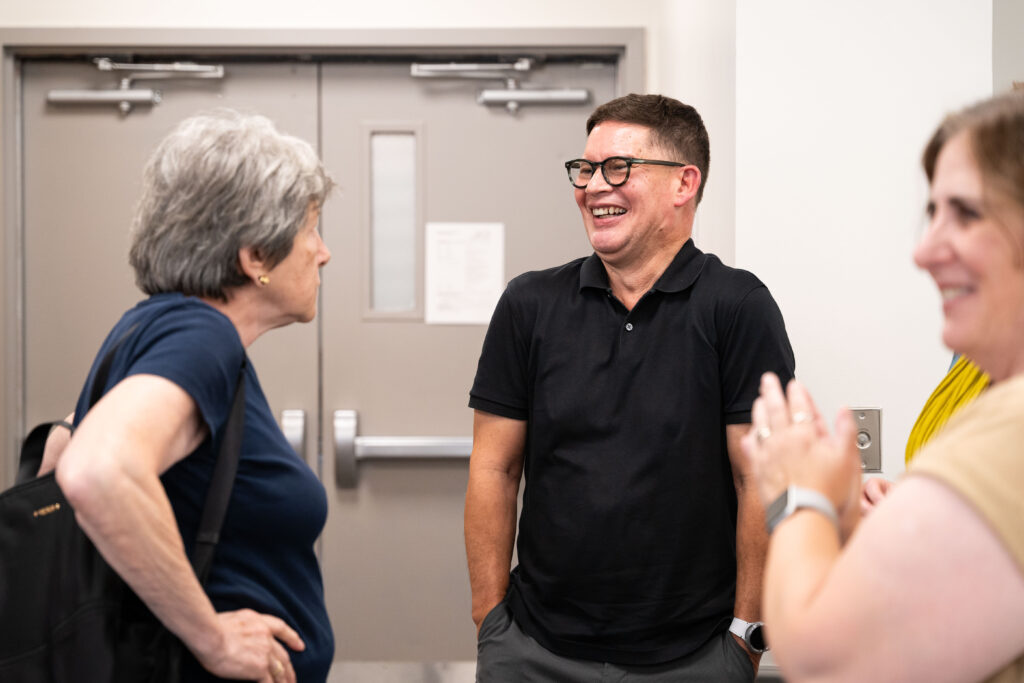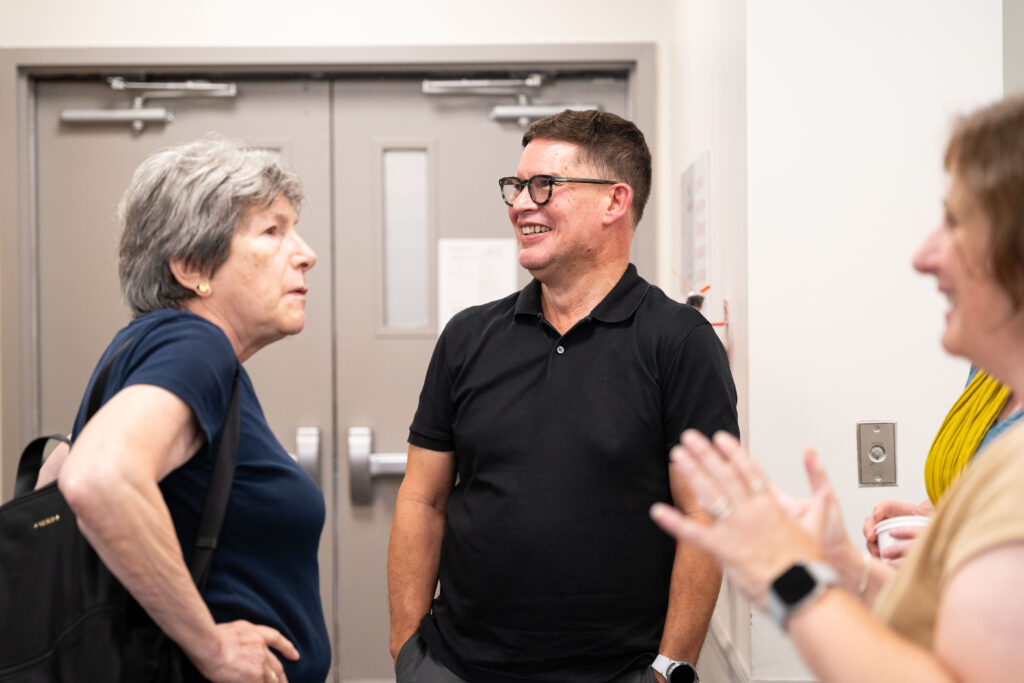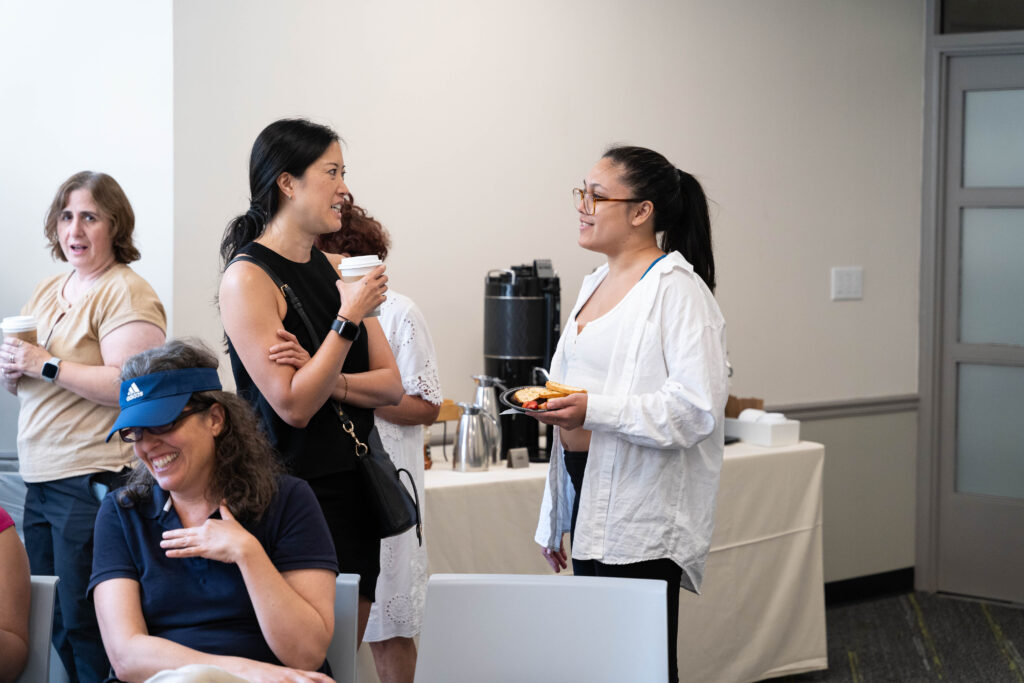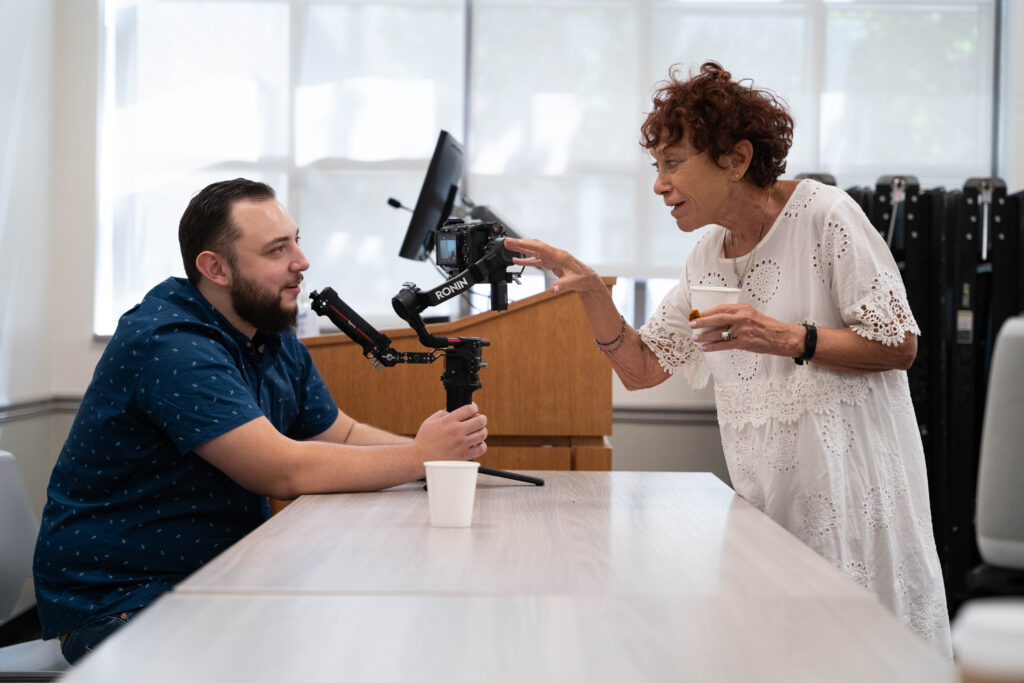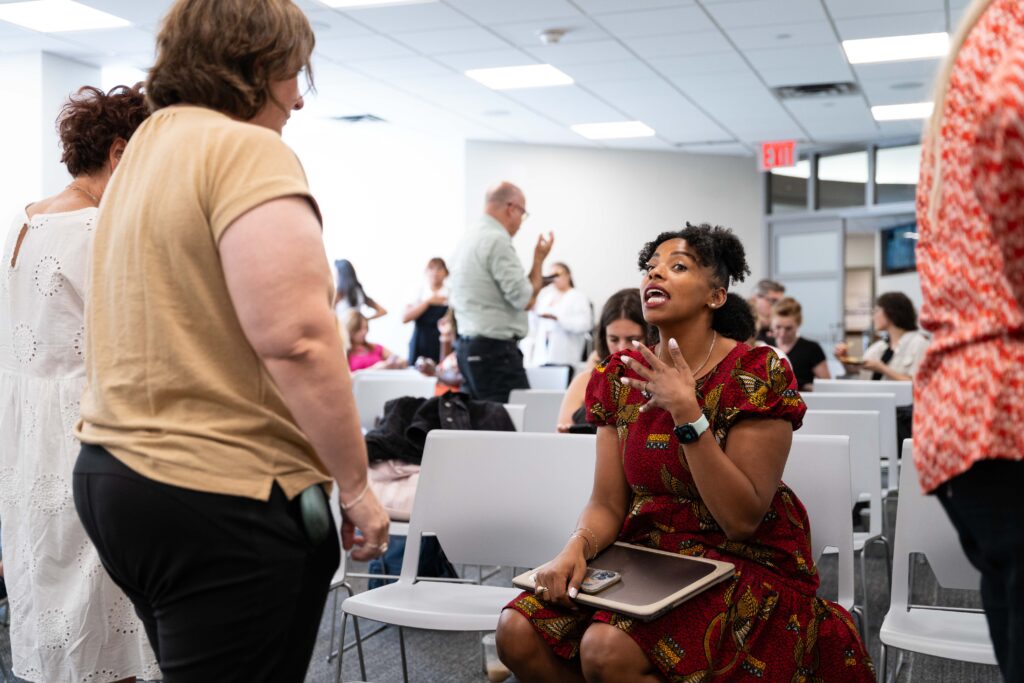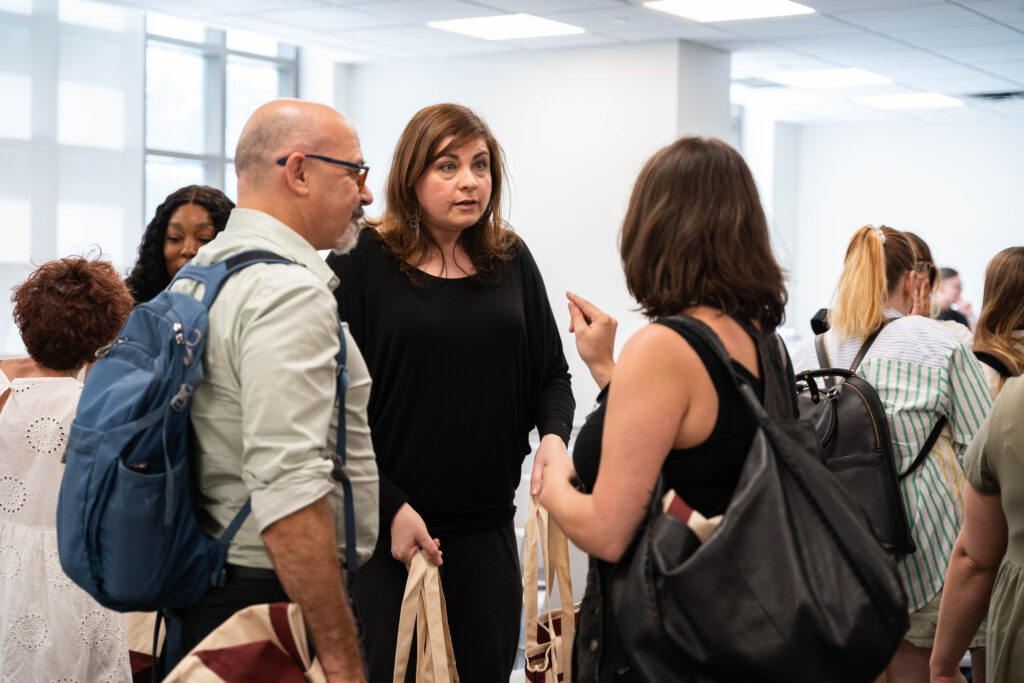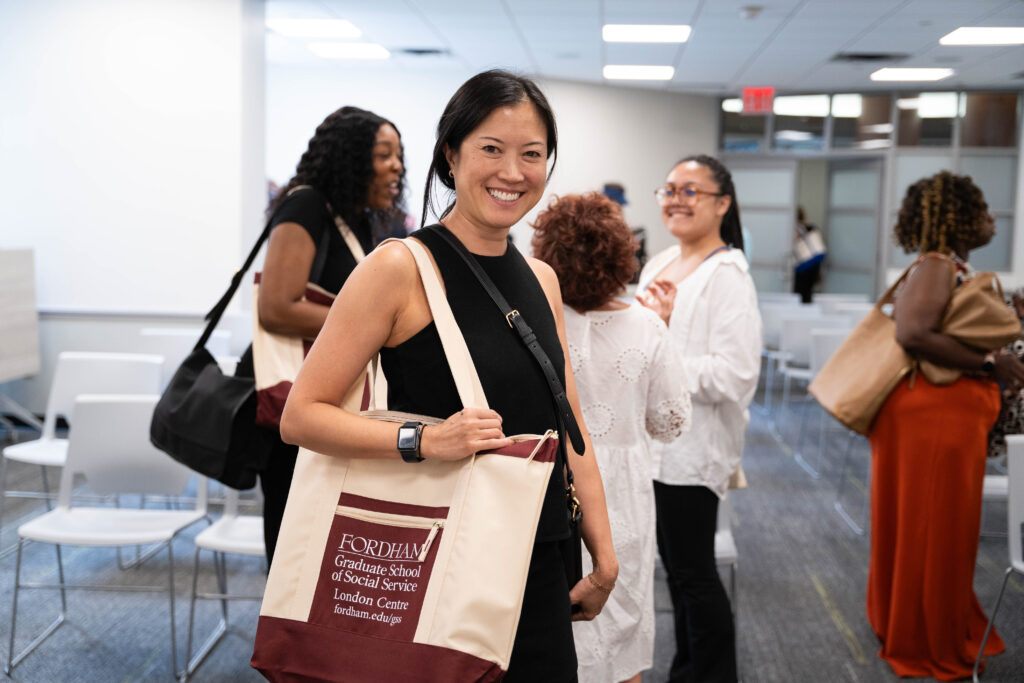The 2023 Fordham London Summer Program cohort met for its first orientation this past Monday at Fordham’s Lincoln Center campus to kick off the program’s scheduling.
Almost 40 Master of Social Work (M.S.W.) students comprise this year’s group. The London Summer program is a three-week initiative where students take coursework at Lincoln Center and Fordham’s London Centre, and learn about the historic settlement house movements in the two major cities.
Settlement (Power) House(s)
Along with refreshments, networking, and Fordham/London swag, students were treated to a panel discussion on Monday between some heavy hitters in the settlement house world.
Event Panelists:
Melissa Aase
- Chief Executive Officer – University Settlement
- Board Member – International Federation of Settlement Houses and Neighborhood Centers
Tony Armstrong
- Chief Executive Officer – Locality UK
- Board Member – International Federation of Settlement Houses and Neighborhood Centers
Chris Hanway
- Executive Director – Jacob Riis Settlement
Nancy Wackstein
- Former Executive Director – United Neighborhood Houses
- Former Executive Director – Lenox Hill Neighborhood House
Wackstein opened the floor by laying the groundwork for the day’s conversation. Mainly, she asked the room, “What even is a settlement house? How do they work? What do they do?”
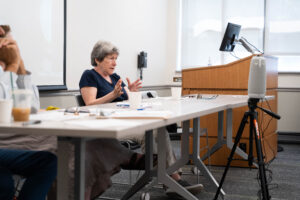
Nancy Wackstein
An answer can be found on the Jacob A. Riis website, which defines a settlement house as “a welcoming place where community members have the opportunity to participate in services and activities, including education, housing, health care, employment opportunities, recreation, and the arts, to improve their lives.”
The key word there is “participate.” Panelists agreed that their organizations don’t refer to those who use the settlement house services as clients but rather as “participants.” This reflects the collaborative nature of the entire process, where settlement house staff genuinely listen to those in the community to find solutions and fill service gaps.
“We want to break down the barriers between the professionals and the consumers of the services,” Wackstein said. “They are active participants in the process.”
Three Decades of Service
Melissa Aase has worked at University Settlement for 31 years. She started as an intern while completing her MSW degree after studying religion as an undergraduate. She says her background in religious studies gave her a bedrock understanding of the “history of social movements and oppression.”
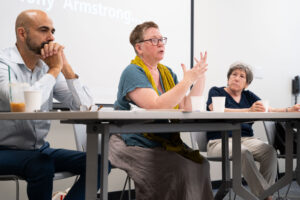
Mellissa Aase
She still carries the same fire she started with as an outreach worker when first joining University Settlement. She said her career in a settlement house setting has given her a different perspective on social work.
“Even with our intense, one-on-one interactions, the macro view is always present,” she said. “Why is this teenager homeless? We look at housing, support for parents, in the school system — what are the inequities present? How can regular people — and social workers — have an impact on that situation?”
Aase said her early work at University Settlement was political, emotional, and artistic, adding that she and her coworkers were “creative in how they conducted their advocacy.”
At the roots of settlement house work, Aase continued, is a history of careful listening. As the first settlement house in the US, University Settlement saw the extraordinary work being done by organizations like Toynbee Hall in the UK (where Fordham MSW students will visit later this summer) and brought those ideas back to Manhattan’s Lower East Side in the 1880s, where it still stands today.
“It started with a survey in the area about needs,” she said. “[Settlement Houses] listen, and they ask why and work so that need is no longer a need.”
“The Key is Reciprocity”
Hanway spoke next and continued the conversation highlighting the importance of community involvement for settlement house success.
“We’re not here to tell folks in the community what to do,” he said. “There’s a reciprocity of working with people in the community.”

Chris Hanway
Hanway likened settlement house staff to “worker bees,” communicating with those in the area to define how to best meet community members where they are and provide support. Having worked at Riis for the last 15 years, Hanway said the organization “takes advantage of the amazing diversity” in the community and the staff “in the best way.” Riis has gone so far as to hire a “director of community connectedness” to ensure it is a true collaborator to those it serves.
“It’s a combination of direct service with advocacy and organizing with the community,” he said. “The key is reciprocity and collective change.”
Settlement House Culture in the UK
One of the biggest benefits of the summer London program is providing students with an international perspective of the profession. To give a brief preview of what is to come, Monday’s final panelist — Tony Armstrong, CEO at Locality UK — presented virtually from London to give insight into how settlement house culture in England compares and contrasts to what we know here at home.
Perhaps the most significant difference comes through funding and how these organizations support operations. While many nonprofits and settlement houses in the US rely on the generosity of donors (along with government contracts), British organizations rarely receive large philanthropic donations.
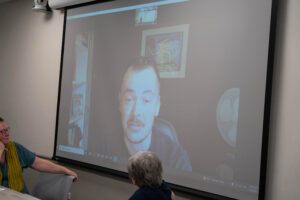
Tony Armstrong
This results in what Armstrong called a more “enterprise model,” where the lack of philanthropic funds means power can remain with those in the community, namely through things like board seats. In the US, board members at organizations can pay for their seats, whereas in the UK model, Armstrong said, board members are local residents.
Armstrong focused heavily on the idea of community power and how organizations — specifically in the UK — need to be less reactive and more proactive in their service-based models. However, he continued, the difficulty in this shift comes through balancing the long-term transition while still providing services for those in immediate need.
“We shouldn’t be providing food banks,” he said, “we should be investing in sustainable food systems.”
A Worthwhile Challenge
From the 1880s up until 2023, working in a settlement house has never been easy. Social workers within these organizations are subjected to society’s inequities daily. As the economic impacts of high inflation and the coronavirus pandemic continue to linger, political polarization increases our country’s division, and the wealth gap from the wealthiest 1% to everyone else widens even further — things can look bleak.
However, change begins with those on the ground. With the community. The event’s panelists urged students to use the London program as an opportunity to reflect on how they can impact their own communities in a macro-based setting and how they can use the broad skillset offered in the MSW program to become leaders in these organizations and their communities.
In fact, Hanway added, Riis Settlement is exemplifying investing back into its own to find future leaders. Its leadership doesn’t want to hire from outside the organization to select leaders; Riis wants its own staff — those who know the needs and, in some cases, have lived through the needs themselves — to take the reins.
“We are preparing the leaders who reflect the community to lead the organization,” he said.
Armstrong said in closing that he realizes this work can test even the strongest of wills. However, within the difficulty, we find meaning and purpose.
“It’s challenging work,” he said. “But it’s challenging because you’re doing something worthwhile.”/
View some more pictures from the day’s event below — and be sure to stay tuned for more from the Summer London Program! #FordhamGSSLondon2023

